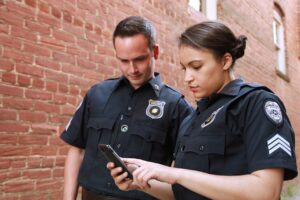Best Way to Find Public Police Records
Have you ever wanted to find public police records without the hassle of figuring out how to get them? This article will break down the steps for finding public police records and provide you with a list of great tools and resources to help you make this happen.
What Information is Available in Police Records?
Police records can include a wide range of information, from the names and addresses of people who have been arrested to the details of crime reports. In many cases, this information is available to the public.
There are some ways to access police records. One option is to visit the local police department and request access to the documents. Another option is to contact the state or county clerk’s office, which may have copies of police records on file. Finally, many police departments have websites that allow the public to search for specific types of information online.
Some states have laws that restrict what information is available in police records. For example, some states limit access to information about arrests that did not result in a conviction. However, in most cases, at least some basic information from police records is available to the public.
How to Find Public Police Records Through an Online Search
There are a few different ways to find public police records online. One way is to search for the name of the person or agency you’re looking for on a search engine like Google. Another way is to go to the website of the state or local government agency that keeps police records and look for a link to an online database.
If you’re looking for specific information from a police report, such as the victim’s or perpetrator’s name, you can try searching for that information on a news website. You might also be able to find police records by searching for the case number on a court website.
How to Find Public Police Records at the Library
The library is a great place to start if you’re looking for public police records. Here’s how to find what you’re looking for:
- Ask the reference librarian for help. They will be able to guide you to the appropriate resources.
- Look for city and county directories. These often include lists of local officials, including police officers.
- Check out the local newspapers. The police blotter can be a great source of information on recent arrests and other criminal activity in your area.
- Use online resources. Many libraries offer access to online databases that include public records.
Obtaining Arrest Logs
Police departments typically keep arrest logs containing details about when and where a person was arrested. You can obtain these logs by searching for your desired person’s name on a public police records website. Some police departments, including the Golden Gate communications center in the San Francisco Bay Area, put these records online. The Golden Gate website shows traffic incidents, abbreviations, and an arrest log. This information is  valuable because it can provide much information about a crime.
valuable because it can provide much information about a crime.
One of the most valuable pieces of information in an arrest report is the information regarding the charges against the individual. This information is listed in the description and title of the arrest log. The charges listed describe the crime committed and the entity that filed the allegations against the individual.
Obtaining Investigation Reports
If you are interested in obtaining a copy of an investigation report, the first step is locating the police department where the incident occurred. Police departments often offer this service online, but you can also request a copy in person. When requesting these reports, you will need to provide the police department with a case number, the date of the incident, and the city.
If you wish to request a copy of an investigation report, it is essential to note that you will need to submit a request in person, and there may be a $10 administrative fee. However, the more information you have about the incident, the faster you can obtain a copy.
Public police records may include arrests, crime reports, and traffic accidents. These reports contain important details about incidents that occurred and may consist of evidence related to the case. The records also collect information on the police’s investigation of the incident, such as traffic accidents, burglaries, and domestic disputes. They may also include crime surveys, weather information, and other details.
Obtaining Arrest Logs in Person
Arrest logs are police records that contain the names and dates of arrests. You can request these records from your local police department in person or by mail. Most departments require that you present a valid ID before they provide you with a copy. Sometimes, they will need that you sign a disclaimer stating that you have the legal authority to obtain the records. However, these requirements vary from jurisdiction to jurisdiction. In some jurisdictions, arrest logs are only available to the parties involved in the incident or their agents.
Conclusion
If you’re looking for public police records, there are a few different ways to go about it. You can contact the police department directly and request access to the records, search for the documents online, or use a Freedom of Information Act request. Each method has pros and cons, so choosing the one that’s right for you is essential.
No matter which method you choose, remember that public police records are just that: public. Anyone can access them, so it’s important to know what information is available before you make your request.



